513 Managing Projects to Achieve Results
- November 11, 2022
- Posted by: Scarlett
- Category: CMI Level 5

Table of Contents
CMI Level 5 Unit 513 Managing Projects to Achieve Results is a unit that covers the process of project management from beginning to end. The unit begins by discussing the significance of project planning and goal setting. It then covers project management tools and techniques like scheduling, risk management, and cost control. A section on project team dynamics, including team building and communication, is also included in the unit. Finally, the unit wraps up with a discussion of project completion and evaluation. This unit is essential for anyone who wants to learn how to manage projects successfully. Students will be able to create and implement project plans, monitor and control project progress, and identify and resolve project issues by the end of this unit.
The qualifications are intended for current or aspiring managers in positions such as: –
- Operations Manager
- Divisional Manager
- Departmental Manager
- Regional Manager
- Specialist Manager.
The total unit time gained for the Award can be applied to a Level 5 Certificate or directly to a Level 5 Diploma.
Unit Aim
This unit was created to allow Operational Managers to demonstrate their ability to manage projects with an organizational impact. Managers must create a Good Practice Guide that focuses on the knowledge, skills, and tools needed to plan, implement, and manage projects, build stakeholder relationships, manage resources and risk, overcome problems and challenges, report on outcomes, and ensure successful project handover.
Learning Outcomes
1. Recognize the role of projects in the delivery of organizational strategy.
2. Be familiar with the processes for initiating, planning, and managing projects.
3. Recognize the factors that contribute to effective project management.
Assessment Criteria
1.1 Examine the role of projects in achieving organizational goals.
2.1 Examine the project-initiation process.
2.2 Investigate the impact of legal, organizational, and ethical considerations on projects.
2.3 Discuss the use of tools and techniques for project planning and management in various contexts.
2.4 Examine techniques for collaborating with stakeholders to achieve project goals.
2.5 Assess methods for tracking project progress. 2.6 Discuss methods for reporting project outcomes.
2.7 Evaluate project closure approaches
3.1 Discuss data and information management methods in a project environment.
3.2 Evaluate the use of problem-solving and decision-making techniques in project management.
3.3 Investigate methods for identifying, managing, and mitigating project risks.
Summary
The maximum time allowed for completion is six months. Up to three months of tutorial support
Complete one unit to meet the minimum requirement of 40 hours TUT/4 credits; inspired2learn currently offers the following units:
Related Articles:
FAQ
What is project management?
Project management is the process of planning, organizing, and managing resources to achieve specific goals within a given timeframe. It involves a variety of activities, such as:
Defining the project: This includes identifying the project’s goals, scope, and deliverables.
Planning the project: This includes developing a project plan that outlines the project’s tasks, timelines, and resources.
Organizing the project: This includes assembling the project team and assigning tasks.
Managing the project: This includes monitoring the project’s progress, making adjustments as needed, and ensuring that the project is completed on time and within budget.
Closing the project: This includes finalizing the project’s deliverables and celebrating the project’s success.
Why is project management important?
Project management is important because it helps organizations to:
Achieve their goals: By effectively managing projects, organizations can achieve their goals on time, within budget, and to the required quality standards.
Improve efficiency: By using project management tools and techniques, organizations can improve efficiency and productivity.
Reduce risks: By planning and managing projects carefully, organizations can reduce the risks associated with projects.
Improve communication: By effectively communicating with stakeholders, organizations can ensure that everyone is on the same page and that the project is completed successfully.
What are the key principles of project management?
The key principles of project management include:
Planning: The project plan is the foundation of any successful project. It should be comprehensive and detailed, and it should be updated regularly as the project progresses.
Communication: Communication is essential for the success of any project. The project manager must communicate effectively with the project team, stakeholders, and other relevant parties.
Risk management: Risks are inevitable in any project. The project manager must identify and assess risks, and develop plans to mitigate them.
Change management: Change is inevitable in any project. The project manager must be able to manage change effectively, and ensure that the project stays on track.
Leadership: The project manager must be a strong leader who can motivate and inspire the project team.
What are some challenges in project management?
Some challenges in project management include:
Scope creep: Scope creep is the tendency for projects to grow in scope over time. This can be a major challenge, as it can lead to delays and cost overruns.
Communication breakdowns: Communication breakdowns can occur between the project manager, the project team, and stakeholders. This can lead to misunderstandings and delays.
Risks: As mentioned earlier, risks are inevitable in any project. The project manager must be able to identify and assess risks, and develop plans to mitigate them.
Change management: Change is inevitable in any project. The project manager must be able to manage change effectively, and ensure that the project stays on track.
What are some resources for learning more about project management?
Some resources for learning more about project management include:
The CMI 513 Managing Projects to Achieve Results unit
The Project Management Institute (PMI) website
The book “Project Management: A Very Short Introduction” by Mike Clayton
Why Choose Us?
- GPT Zero
- 100% Non-plagiarised Papers
- Dedicated human resource writers
- 24/7 /365 Service Available
- Affordable Prices
- Money-back and Privacy guarantees
- Unlimited Amendments upon request
- Satisfaction guarantee
